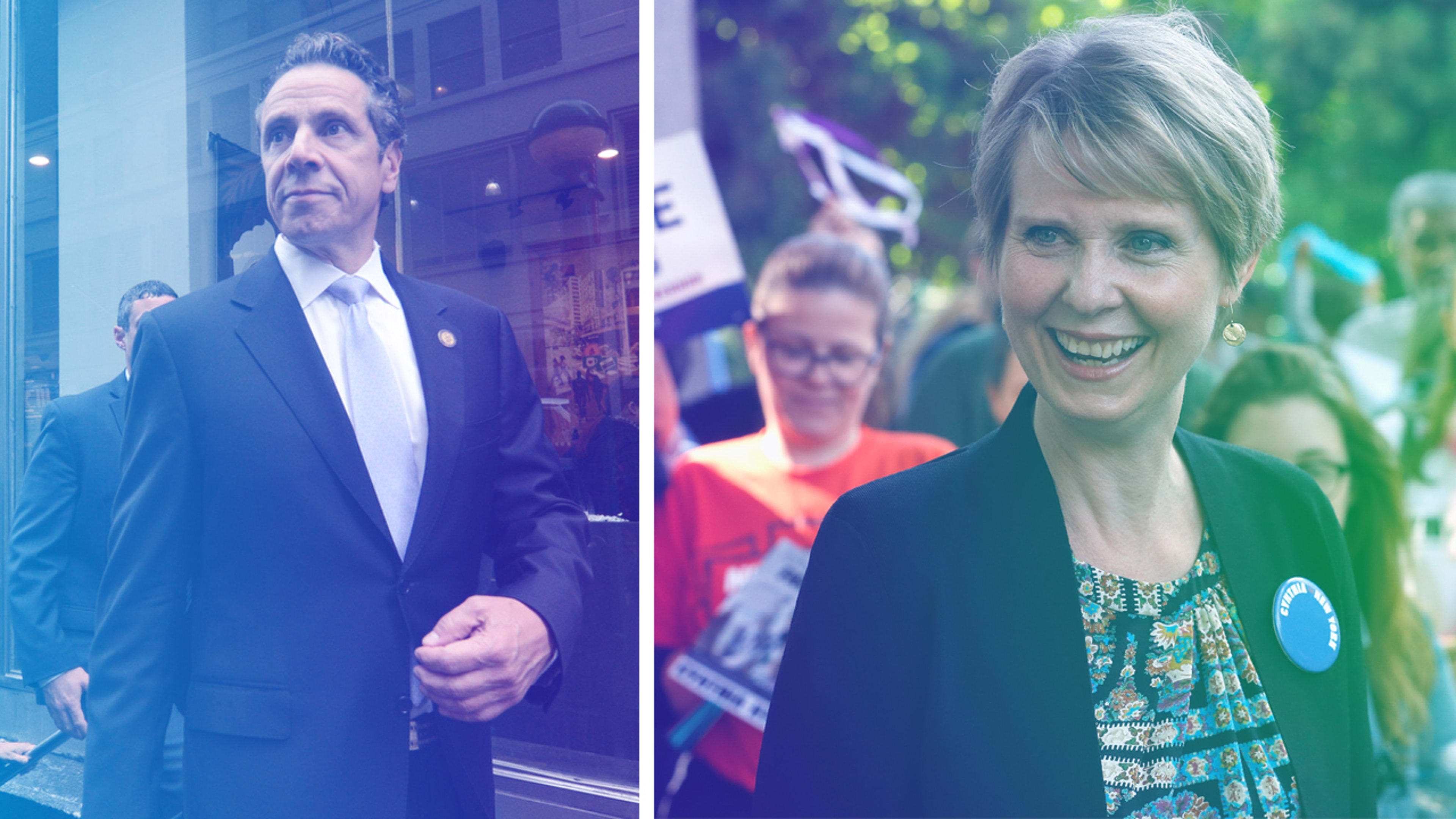The 2018 trend of political newcomers unseating seasoned-but-boring incumbents did not extend to New York’s gubernatorial race.
Less than an hour after polls closed this evening, the Associated Press called the race for Governor Andrew Cuomo, who handily beat Cynthia Nixon in the state’s primary election. At last check Cuomo led Nixon 65% to 34% with 56% of the state’s precincts reporting.
While Cuomo significantly outspent his challenger, Nixon ran a spirited social media campaign that gave—at least from some angles—the appearance that she was building momentum, particularly in a year when polls have so frequently failed to predict a victor. With no political experience, she impressively held her own during a debate last month, one-upping the career politician on progressive topics such as Medicare for All, marijuana legalization, and prison reform.
In her concession speech, Nixon vowed that, despite her loss, the trend of insurgent progressive victories is not going away. “The blue wave is not only coming for Republicans, it’s coming for Democrats who act like them,” she said.
She’s not wrong: Over in Brooklyn tonight, Julia Salazar, a Democratic Socialist and first-time candidate, defeated Martin Dilan, a 16-year incumbent, in Brooklyn’s 18th Senate District.
Recognize your brand’s excellence by applying to this year’s Brands That Matter Awards before the early-rate deadline, May 3.
